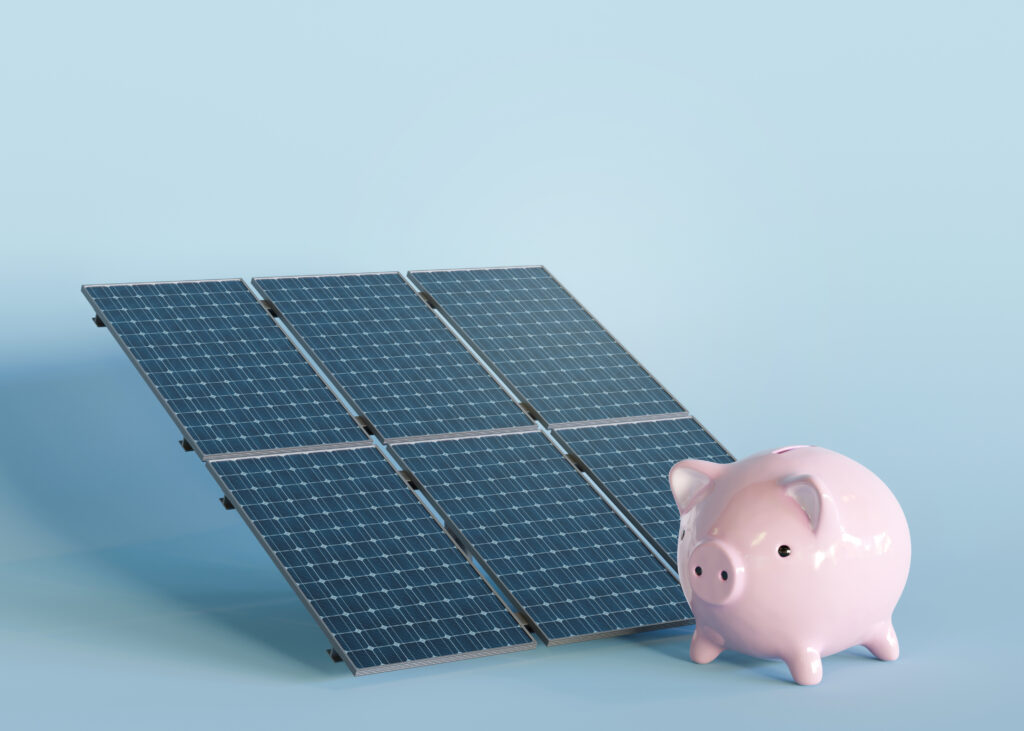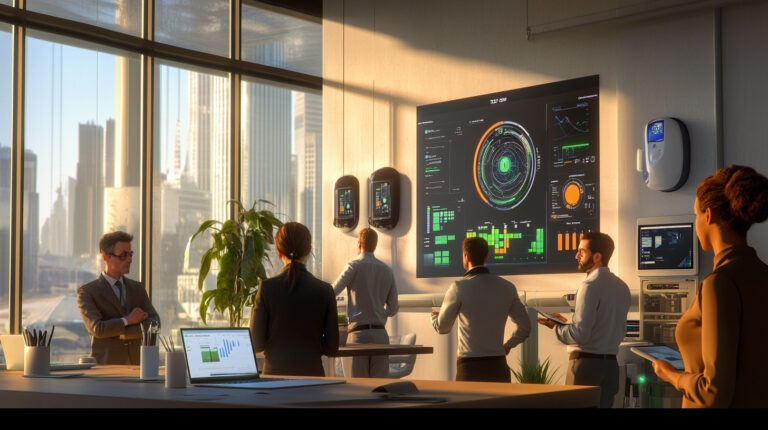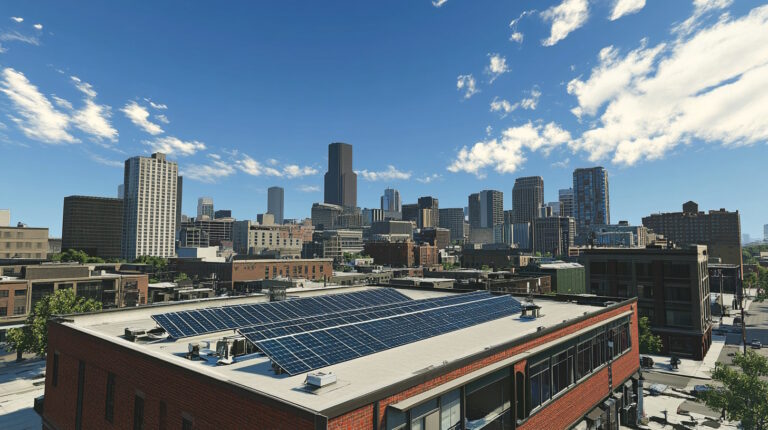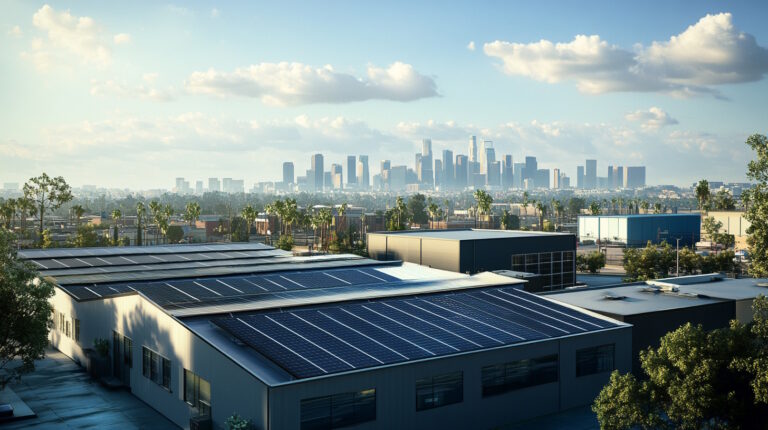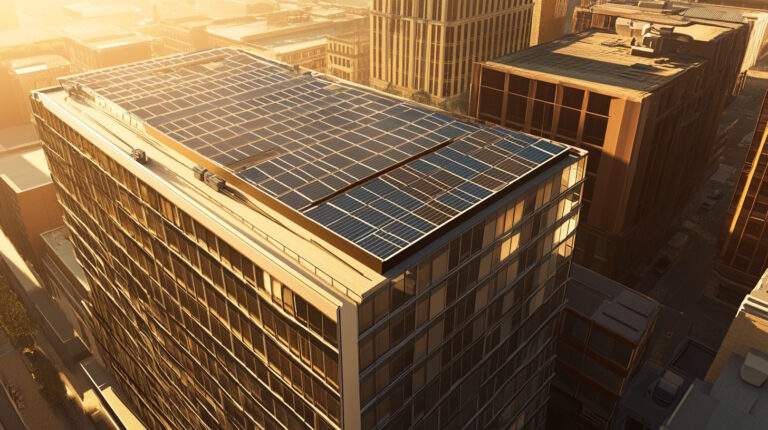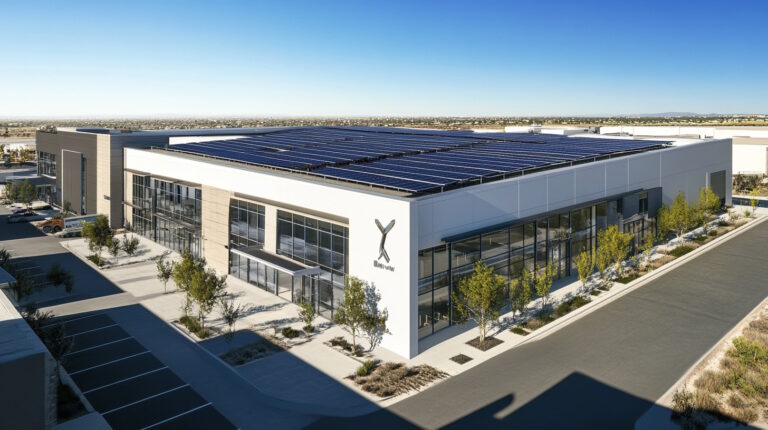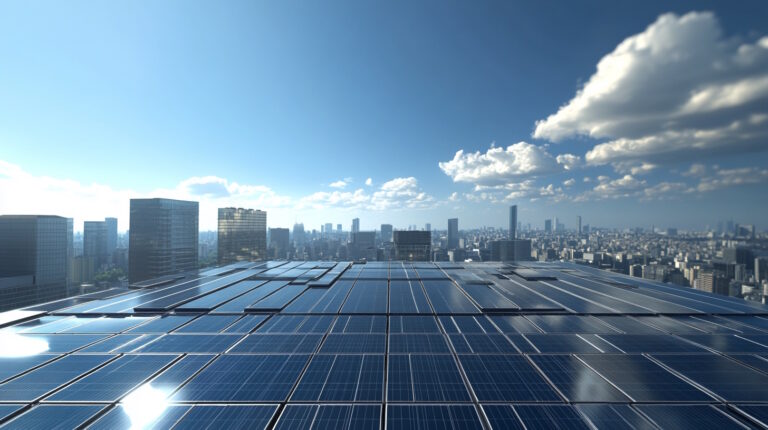Article Insights
- Discover how commercial solar systems affordability impacts your business’s bottom line.
- Learn about various solar financing options for businesses that can ease the financial burden.
- Explore the long-term cost savings with solar energy that can enhance your property’s value.
- Understand the benefits of government incentives and rebates that make solar installations more accessible.
Transitioning to solar energy is more than just an environmentally friendly decision; it’s a strategic financial move that can significantly affect your bottom line.
As commercial property owners navigate the complexities of energy costs and sustainability goals, understanding the affordability of commercial solar systems becomes crucial.
This article will guide you through the key factors that influence solar system costs, various financing options available, potential savings, and real-life success stories to illustrate the financial benefits of solar investments.
By the end, you’ll be equipped with the knowledge to determine whether a commercial solar system is a viable investment for your business.
Understanding Commercial Solar Systems
Commercial solar systems are renewable energy solutions designed specifically for businesses, enabling them to generate their own electricity from sunlight.
These systems typically consist of solar panels, inverters, and other components that work together to convert solar energy into usable power.
By switching to solar energy, commercial property owners can not only reduce their reliance on traditional energy sources but also benefit from lower utility bills and increased sustainability.
The importance of investing in commercial solar systems cannot be overstated. With rising energy costs and an increasing focus on sustainability, businesses are seeking ways to mitigate expenses and enhance their corporate social responsibility.
Solar energy presents a compelling opportunity to achieve both goals, making it a worthy consideration for any commercial property owner.
Factors Affecting Affordability of Commercial Solar Systems
When evaluating the affordability of commercial solar systems, several key factors come into play. The initial installation costs can vary widely depending on system size, quality of components, and installation complexity.
On average, the upfront investment for commercial solar systems may seem daunting, but it’s essential to view it as a long-term asset rather than a mere expense.
In addition to installation, commercial solar system maintenance and operational costs should also be factored into your financial calculations.
While solar systems generally require minimal maintenance, regular inspections and occasional repairs may incur costs over the system’s lifetime.
However, these costs are often significantly lower compared to conventional energy sources.
Moreover, many governments and utility companies offer a variety of incentives and rebates to encourage businesses to adopt solar technology.
These incentives can substantially reduce the net installation costs, making solar energy a more accessible option for commercial property owners.
Understanding these financial incentives can help you evaluate the true affordability of a solar investment.
Solar Financing Options for Businesses
Exploring solar financing options for businesses is essential for making solar energy projects financially feasible. Traditional purchase models require full upfront payment, which can be prohibitive for many property owners.
Fortunately, various financing methods can alleviate this burden and make solar installations more attainable.
One popular commercial solar financing option is securing a loan specifically for solar energy projects. Solar loans typically offer competitive interest rates and flexible repayment terms, allowing businesses to spread the cost over several years.
This approach can help property owners manage cash flow while still benefiting from solar energy savings.
Another option is leasing. With a solar lease, businesses can install solar systems with little to no upfront costs. Instead of purchasing the system outright, you pay a fixed monthly lease payment for a specified term.
This arrangement allows you to enjoy the benefits of solar energy without the associated capital costs.
Power Purchase Agreements (PPAs) are also gaining popularity among commercial property owners. Under a PPA, a third-party developer installs the solar system at your facility, and you agree to purchase the electricity generated at a predetermined rate.
This option allows you to benefit from solar energy while avoiding the upfront costs and maintenance responsibilities associated with ownership.
Cost Savings with Solar Energy
One of the most compelling reasons to invest in commercial solar systems is the significant cost savings with solar energy.
By generating your own electricity, businesses can substantially reduce their reliance on the grid, leading to lower monthly utility bills.
In many cases, the savings on energy costs can offset the installation and financing expenses within a few years.
In addition to immediate savings, solar energy systems can also enhance the overall value of your property.
Properties equipped with solar systems are often more attractive to potential tenants or buyers, as they come with lower energy costs and a commitment to sustainability.
As the demand for eco-friendly spaces continues to rise, having a solar installation can set your property apart in a competitive market.
Furthermore, investing in solar energy can improve your company’s brand reputation and appeal to environmentally conscious customers.
As businesses increasingly prioritize sustainability, demonstrating a commitment to renewable energy can enhance your market position and drive customer loyalty.
Case Studies: Success Stories of Commercial Solar Investments
Numerous businesses have already reaped the benefits of investing in commercial solar systems. For example, a local manufacturing company decided to install a large solar array on its facility.
By leveraging federal tax credits and state incentives, the company was able to reduce its initial investment significantly.
Over time, the savings on electricity costs not only paid for the installation but also provided a steady stream of profit for years to come.
Similarly, a retail business utilized a Power Purchase Agreement to install solar panels on its rooftop. By partnering with a third-party developer, the retailer avoided upfront costs and was able to enjoy immediate savings on energy bills.
The arrangement proved beneficial, as the fixed electricity rates under the PPA were consistently lower than the local utility rates, providing financial stability and predictability.
These case studies illustrate the tangible benefits that commercial property owners can achieve by investing in solar energy.
With careful planning and consideration of financing options, businesses can successfully integrate solar systems into their operations and enjoy long-term financial rewards.
Commercial Solar is More Affordable Today
In conclusion, understanding the affordability of commercial solar systems is essential for any property owner considering a transition to solar energy.
By examining the various factors affecting costs, exploring financing options, and recognizing the potential savings, you can make an informed decision about whether a solar investment is right for your business.
With government incentives and real-world success stories demonstrating the financial viability of solar energy, there has never been a better time to consider making the switch.
Embrace the power of solar energy and take a proactive step towards a more sustainable and cost-effective future for your commercial property. Connect with us at Green Current Advisors to learn more.

